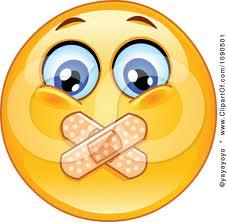Providing free online community support to people affected by breast cancer
Free Member Signup
Site Search
MOUTH CARE DURING CHEMOTHERAPY
Chemotherapy works by damaging cells as they divide and multiply. All ‘faster-growing’ cells in the body are affected, including normal cells. Cancer cells are unable to repair themselves, therefore the chemotherapy aims to slow and destroy cancer cells. Normal cells are usually able to recover, although most of this recovery may not occur until well after treatment is completed.
Chemotherapy may cause mouth problems, including dry mouth, painful ulcers & infections. This in turn may cause difficulty with eating, drinking, sleeping and even talking!
Not everyone will develop mouth problems during chemotherapy, however some effect is common and may develop as early as 3-7 days after the first dose.
IMPORTANT: If you have dental problems prior to commencing chemotherapy (e.g. broken tooth, gum disease, cavities, poor-fitting dentures), inform your Oncologist.
A dental check may be advised prior to treatment.
Careful mouth care & oral hygiene is essential during chemotherapy for several reasons:
WHAT TO LOOK FOR
Careful inspection of your mouth daily is recommended. Observe for reddened patches, painful areas, white coating of gums or tongue (possible thrush infection), small ulcers developing, sore or bleeding gums & tongue. Report any changes to your team and commence recommended treatments (you may be given advice / written information before you start chemotherapy)
**An oral assessment is needed if painful or serious problems develop, and specific preparations & remedies may be needed to ease discomfort & treat the problem (e.g. prescription mouth wash, antibiotic gels, etc)
MOUTH CARE
+ Keep mouth moist, i.e. sip fluids, suck ice chips, icypoles or sugarless lozenges, chew sugarless gum or use **moisturising mouth rinses & artificial saliva if needed (see suggested products below)
+ Rinse mouth frequently (using mouth wash), especially after eating or if been sick
+ Add moisture to food to help with swallowing, e.g. eat soups & casseroles, add sauces / gravy
+ Avoid irritants such as tobacco, neat spirits, hot spices, salty foods & acidic drinks e.g. orange juice
+ Drink plentiful fluids (try to drink at least 1.5 litres/day), e.g. water, tea, coffee, non-acidic juices, herbal teas, soft drinks, cordial-flavoured drinks, milkshakes & soups
+ Apply lip balm / lanolin to prevent lips becoming dry and chapped
TEETH CARE
# Clean teeth at least twice daily
# Use ultra-soft toothbrush to protect gums
# Change toothbrush often (at least every 3 months)
# Use mild gel toothpaste. Avoid strong flavoured or abrasive pastes, or any containing whiteners
# Floss daily (gently as gums may bleed easily). NB: If low blood platelet counts, flossing not advised until counts rise. Check with doctor / nurse
# If toothpaste too strong, clean teeth gently with brush and rinse with mouthwash
MOUTH RINSE RECIPES
Rinsing mouth is encouraged frequently through day – before eating to ‘freshen’ tastebuds and mouth, after eating to clean mouth, and in-between to keep mouth moist and fresh.
Dissolve 1 teaspoon in 1 cup water, rinse mouth thoroughly and spit out. Do not swallow. Use within 20 minutes of preparing solution, discard any remaining (needs to be fresh)
Commercial mouthwashes are available – avoid any strong flavoured or alcohol-based. Your treating team or Pharmacist may recommend suitable mouthwashes. If specific problems arise, a special ‘prescription preparation’ may be recommended (often known as ‘Magic mouthwash’), which often contains 3 or more ingredients, e.g. an anaesthetic, antiseptic, antacid, antibiotic and/or anti-histamine.
TREATMENTS
Aspects that may help include:
- Commercial preparations such as dry mouth rinses, gels, lozenges, gums, etc, are available from Pharmacies and supermarkets, e.g. Biotene® products, Difflam® products, Orased® gel. Check with your Oncology team or Pharmacist for recommended products.
- Protein in diet is very important for healing, e.g. scrambled egg, milkshake or ‘protein shake’ preparations, lean meats, mince dishes. Supplement nutritious drinks (e.g. Ensure) may be recommended if difficulty eating.
- Supplements may aid healing, e.g. Zinc, Echinacea, L-lysine, Vitamin C, B & E, Folic acid.
- Antacid lozenges may ease discomfort by neutralising acidity in mouth.
- Antibacterial/antifungal preparations may be needed if infections develop, e.g. Nystatin.
- Glutamine powder (mix with water, swish & swallow) may ease discomfort and aid healing – see http://www.ncbi.nlm.nih.gov/pubmed/9762946
- Honey has been trialled as a possible anti-bacterial & healing agent, applied directly to mouth – see http://www.ncbi.nlm.nih.gov/pubmed/22475306
If severe problems develop, assessment by Oncology team or GP is essential to determine specific problems and treatments. Taking regular pain-relieving medication may also be required to ease discomfort.
For additional information, ask your treating team or refer to ‘Chemotherapy booklets’ in this section of Forum.
Hoping to hear from anyone with suggestions or ideas that helped for them .. please let us know ..

The Click Breast Care Nurse 
59 YO wife and mother, DX Nov 2013, 37 mm grade 2 duct carcinoma. LB mastectomy, 4 lymph nodes with metastases, O & P strongly positive nuclei receptor. 13 Jan FEC begun.